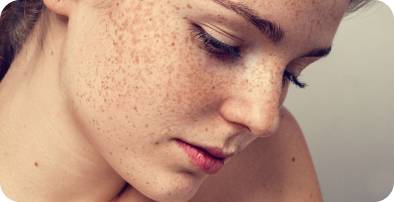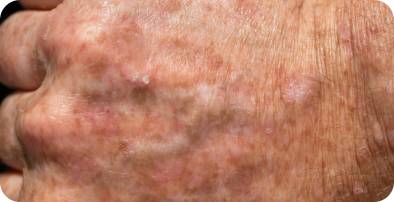Sun Damage Treatment From Dermconsult
Book A Consultation
LEARN MORE ABOUT SUN
DAMAGE
WHAT ARE THE DANGERS OF SUN
DAMAGE?
HOW CAN YOU PREVENT SUN
DAMAGE?

SYMPTOMS OF SUN DAMAGE


FRECKLES
Freckles (ephilides) are most often seen in fair-skinned individuals, particularly those with red hair. They are a result of melanin (dark skin pigment) build-up within keratinocytes (skin cells). In winter, freckles may fade as the keratinocytes are replaced by new cells.
Freckles usually become less noticeable with age. They can indicate that the skin is more susceptible to sun damage. Freckles do not need to be treated.

ACTINIC KERATOSIS
Actinic keratoses (AK) are areas of sun-damaged skin. They are scaly spots that are mostly found on the parts of the skin that are frequently exposed to the sun, such as the backs of hands, forearms, face, and ears.
They are usually harmless but can be unsightly. There is however a small risk of some AKs turning into a type of skin cancer called squamous cell carcinoma (SCC). AK more commonly occurs in individuals that are older and fair-skinned. A tendency to burn rather than tan also predisposes a person to AKs.

